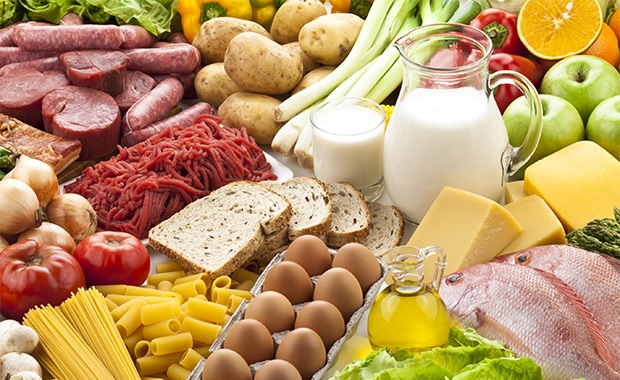|
24/4/2017 3 Comments Keeping Healthy as you AgeMany thanks to nutritional therapist Sarah Wragg for this blog on eating well.
Eating well at any age is important. However ageing can change our attitude and approach to food and it is not uncommon for a person's appetite to diminish. There are many reasons why the elderly may skip a meal, from forgetfulness to a financial burden, depression to dental problems, and loneliness to frailty. Some foods become difficult to chew or digest. Or sometimes the ability to taste food declines in the elderly, blunting appetite. Even if one doesn't feel hungry, it is still important to make sure your body has the energy and nutrients it needs to thrive. As we get older, the body becomes less efficient at absorbing some key nutrients also. This can sometimes be due to declining hydrochloric acid levels (stomach acid), which helps us break down our food and also absorb vitamins and minerals from our food. If one is suffering from indigestion from time to time, which can be a problem in the elderly, then taking some organic apple cider vinegar before meals or squeezing half a lemon into a little water may help, again drinking it before a meal. Healthy snacking maybe a way forward too, for example if you don’t like to eat large meals, or don't feel hungry enough to eat three full meals a day. One solution is to have mini-meals throughout the day. If this is the case, make sure each mini-meal is nutritionally-dense with plenty of fruits, vegetables and whole grains. Seeking help from a Nutritional Therapist could be useful if you are finding you have on-going digestive issues. Which foods? If you are finding you cannot eat as much as you should, then the food you do eat must be as nutritious as possible. Such as unprocessed foods that are high in calories and nutrients for their size, if one is losing weight this is particularly important. Some examples include: healthy fats (nut butters, oily fish, nuts, seeds and olive oil), whole grains (brown rice, oats and quinoa), fresh fruits (brightly coloured berries, bananas, pomergrante) and vegetables (sweet potato, frozen peas, cooked tomatoes, broccoli, spinach, carrots) - canned and frozen are also good choices if it is not easy to get fresh. Not forgetting protein-rich beans, pulses, meat and dairy products such as greek yoghurt or eggs. What nutrients are really important as we age? Eating foods rich in B vitamins can help with energy release such as meats, pulses, sweet potatoes. Foods rich in calcium can help feed the bones which is important as we age such as tinned fish (including eating the bones), broccoli, tofu. Foods rich in folic acid can help with brain health, such as asparagus; green leafy vegetables plus oily fish for omega 3. Vitamin D is also important as we age which can aid bone health, whilst also helping with the absorption of calcium into the bones. Getting out into the sunshine for 20 minutes a day without sunscreen can aid vitamin D absorption. It can also be worthwhile getting your levels checked with your GP. Iron is also important for energy which may diminish as we age, slow cooked lamb or venison can help with digesting meats you may find otherwise hard to consume. Red meats will provide not only iron but also B12, which is important for energy, among many other pathways in the body. Ways to help Whether it’s because of physical limitations or financial hardship or lack of energy, you may find eating and enjoying food difficult. If one feels lonely this may also diminish the desire to eat. Finding a group to join where you can meet like-minded individuals to eat with can help or taking it in turn to have a ‘supper club’ at a friends house can encourage eating. Remember chewing your food well is important to aid digestion, plus taking a gentle walk before a meal can help stimulate the appetite, plus calm the mind. Lots of home-made soups are also a winner – both nutritious and easy to digest! Try to make food interesting, combining textures, such as greek yogurt with granola, with a handful of berries to make foods more appetizing. For further help or advice contact Sarah Wragg Nutritional Therapist BSc (Hons) www.mattersforhealth.co.uk - 07702 492302
3 Comments
I like to take care of my health, both physical and mental. To avoid deficiencies, I had to adopt a balanced diet and above all use a specific food supplement. It is on this article that I found the product that allowed me to relive and enjoy optimal well-being without health concerns.
Reply
27/2/2024 11:31:40 am
Well-prepared and appetizing meals not only nourish the body but also contribute to residents' overall happiness and satisfaction with their living arrangements.
Reply
13/7/2024 12:47:43 pm
Proper nutrition can help prevent common issues in older adults, such as malnutrition, weakened immune systems, and muscle loss.
Reply
Your comment will be posted after it is approved.
Leave a Reply. |
News CategoriesAll Care Homes Carers Equipping Churches Events Hampshire Isle Of Wight Richmond Volunteers |
|
Reg. Charity No. 1160400
© 2024 Embracing Age
|
Quick Links |


 RSS Feed
RSS Feed
